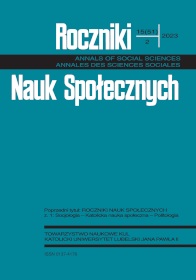PROSPECTS FOR USING NON-TRADITIONAL METHODS OF MANAGEMENT IN PROJECTS FOR THE PROTECTION OF POPULATION AND TERRITORIES
FROM EMERGENCY SITUATIONS
PROSPECTS FOR USING NON-TRADITIONAL METHODS OF MANAGEMENT IN PROJECTS FOR THE PROTECTION OF POPULATION AND TERRITORIES
FROM EMERGENCY SITUATIONS
Author(s): ANDRII HAVRYS, ROMAN YAKOVCHUKSubject(s): Security and defense, Management and complex organizations, Peace and Conflict Studies
Published by: Towarzystwo Naukowe KUL & Katolicki Uniwersytet Lubelski Jana Pawła II
Keywords: extreme project management; flexible project management; emergency situations; uncertainty;
Summary/Abstract: The article analyses literary sources that describe non-traditional methods of project management that can be applied to projects protecting people and territories from emergency situations in the constantly changing environment. Presented are the main features of projects for protecting people and territories from emergency situations. Two types of flexible and extreme project management, which is best suited for such projects, are considered. The definition and main features of flexible project management are presented, as well as the basic principles and methods of flexible control, such as: Scrum, Lean, Extreme Programming (data as of 2018), with the main advantages and disadvantages shown. The positive and negative aspects of extreme management are analyzed, too. The use of these techniques will be effective if the project is in an environment of uncertainty and has no limited resources. In practice the implementation of such approaches in the projects for the protection of population and territories from emergency situations will have a posi- tive effect, provided that all performers will share the principles of flexible management. The pos- sibility of avoiding financial constraints on the implementation of such projects has been shown.
Journal: Roczniki Nauk Społecznych
- Issue Year: 51/2023
- Issue No: 2
- Page Range: 183-192
- Page Count: 10
- Language: English

